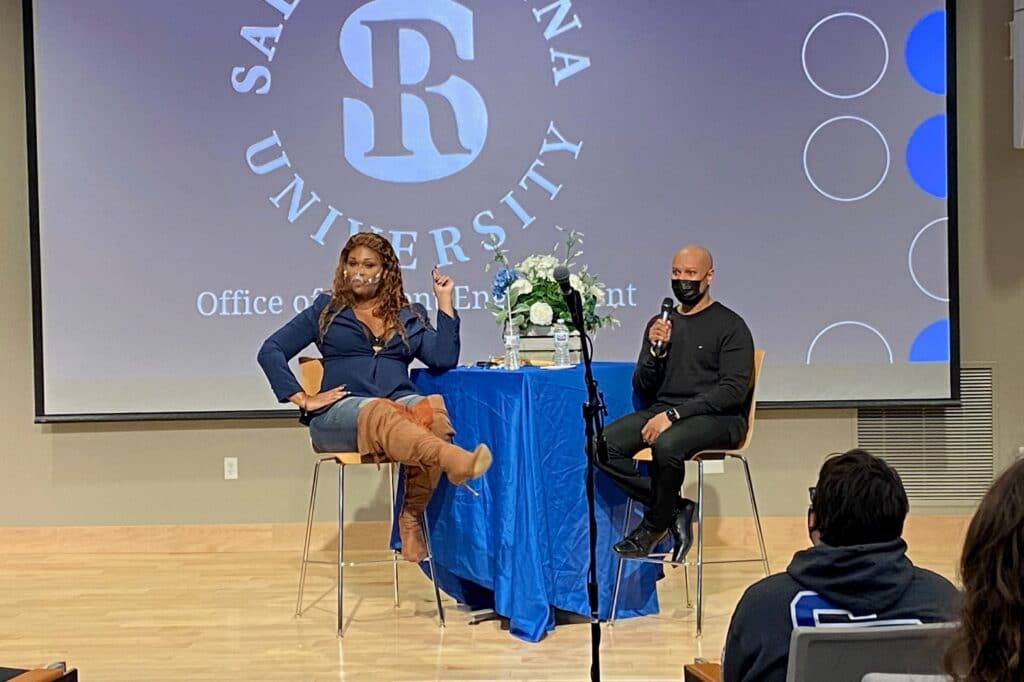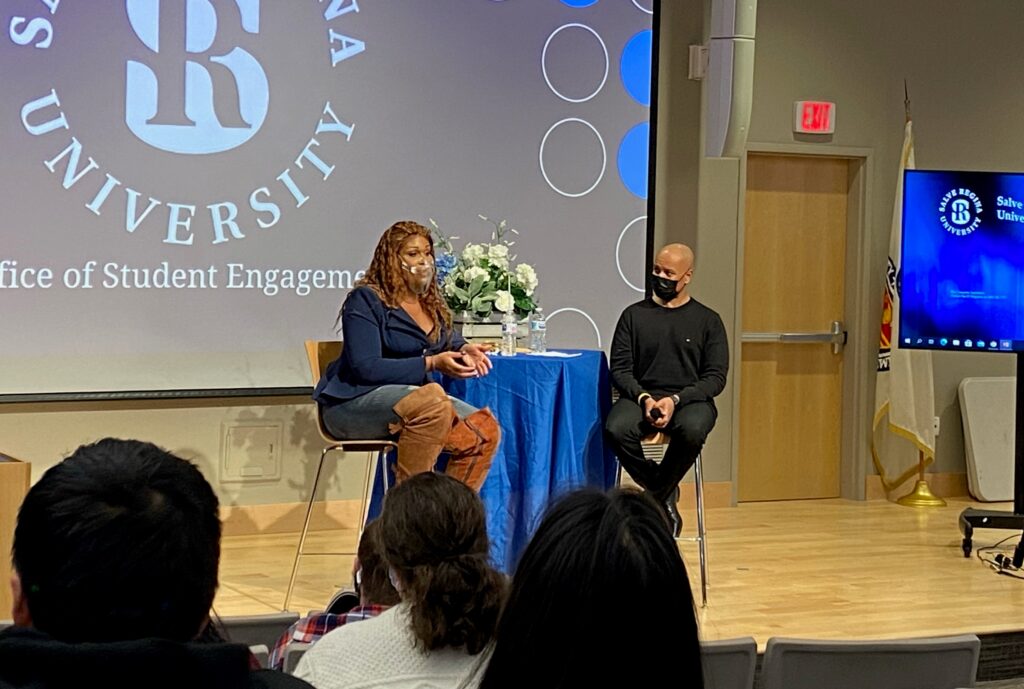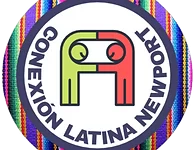By: Amanda Valentine | Editor-in-Chief
Salve Alliance hosted a Q&A on Monday night with drag performer Peppermint, the first runner-up from season nine of RuPaul’s Drag Race and the first trans woman to compete on the show.
The queen brought a slice of the runway to Salve as soon as she made her entrance: rainbow spotlights flooded the walls as Peppermint strode down the steps of Bazarsky to take her seat on stage, accompanied by the pulse of dance music over the speakers and cheers from the audience.
The questions, read by interim dean of students and Title IX coordinator Timothy Dunn, guided a conversation with Peppermint punctuated by moments of both heartfelt authenticity and animated jokes.
Over the course of her years as a drag artist, Peppermint has experienced significant change in her field and, in close relation, her own identity. Before shows like RuPaul, drag was not widely acknowledged or supported. While she believes that adjusting drag to mainstream taste resulted in some loss of the hometown gay bar “seasoning,” as she called it, she sees drag’s growing popularity as net positive.
“I do think that what we gain from having drag more mainstream is much greater than what we lose,” she says. “If we were still only in the gay bar down the street 30-40 years ago, which is the only place we were, nobody was really concerned with giving a drag entertainer an Emmy. So I’m grateful that we’ve been able to surpass the idea of what drag is … We’re able to see that these entertainers or artists have a lot more to offer than being in fancy clothing, a wig, lashes and glitter. There’s so much more, and we’re all very different, we offer a lot of different things to the world.”

One of those offerings is a contagious “sense of freedom” in self-expression. To Peppermint, drag provides both performers and audiences alike a space to explore their gender and identity. The art played an integral role in the development of Peppermint’s own gender identity.
“It was, logistically, “cover” for me to be able to sort out where I sat in the whole gender world … It allowed me the opportunity to sort through my thoughts and whether or not, and how much of, a performance my gender was, and to what degree,” she explains. “[It] was some protection for me because people would see me in drag, and they would clap, give me money, allow me an opportunity to use my voice on my platform, where I think the average person wouldn’t react that way to someone who’s trans or gender non-conforming … drag did those things for me.”
The outlet provides Peppermint with a “drag family,” a concept she recognizes as consistent and important to many queer circles beside drag.
“I think anyone who identifies as queer has a bit of an idea of chosen family and the concept of chosen family,” she says. “These are our friends who love us and care for us, and who we can learn from, and our first sort of protection, maybe on an individual basis, but also as a group and as a community.”
Having a support system was important to Peppermint as she took on the challenge of being the first trans woman to star on RuPaul. Even within this space of relative freedom, her trailblazing earned her criticism from the fanbase as well as queens from other seasons outside her own. She juggled both the pressure to represent her community as well as a desire to be treated equally.
“I didn’t know what to expect or how people would react. Of course that was on my mind. And then there was the other part of it, that I was like, ‘I would like to just be able to focus on winning $100,000, like everyone else!’” she laughs.
Most people today get their information from film and television; so, when “as many as 80% of Americans say that they don’t know someone who is transgender personally,” how television represents them – if at all – has a significant impact on how the majority population understands, and therefore treats, members of the trans community.
Even so, while representation has improved in recent years, increased visibility does not necessarily guarantee increased acceptance.
“The time you have that first [queer] feeling, whatever it is, to the time you’re able to sort of live it in color, I think that time is a lot shorter today than it was in 1993, when I was sitting where you are. But on the flip side of things, the more visibility a community has, oftentimes the more we are targeted and discriminated against,” she says. “I’m tired of people debating whether or not trans people deserve to go to the bathroom, deserve to be in the military, deserve to have a child … we are here in the room, you know. And so, I’m hopeful, and I’m grateful for the visibility. But I really would like to have more accountability.”

After pointing out the poor job that the media and entertainment industry has done representing the trans community thus far, she suggested that the solution may be more opportunities for trans people to tell their own stories.
Peppermint plays no small part in contributing to this conversation. Her recent ventures include becoming Broadway’s first out trans woman to originate a lead role as Pythio in Head over Heels from 2018-2019. She is also a “drag mother” on Call Me Mother, a drag mentoring show that launched this year, and she will costar with a cast of previous RuPaul queens in The Bitch Who Stole Christmas, airing tonight, December 2, at 9PM on VH1.
During the audience Q&A portion of the event, several students led their questions by expressing how much it meant to them to meet her and have her visit Salve. When one student asked how she perseveres through the challenges in her journey, she replied that opportunities to connect with her audience and community, like this Q&A event, are what keep her motivated.
Keep an eye out for more upcoming events this year from Salve Alliance.
If you or anyone you know is struggling with gender identity or dysphoria, Title IX Coordinator Timothy Dunn can be found at (401)341-2640 or Miley Hall, Room 013.














